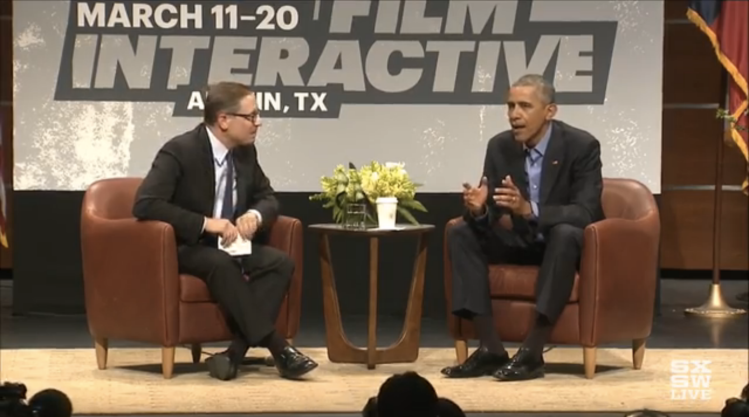Each year, SXSW brings together a unique mix of people in the world of technology, design, media, film, music, and — as of late — an increasing number of people associated with the worlds of philanthropy and social change. The event provides a unique opportunity to cross-pollinate thinking and partner on efforts related to addressing the most interesting and serious issues facing our global society today.
In other words, SXSW should be the ultimate playground for people trying to solve complex problems and have a meaningful, measurable impact on the world.
Unfortunately, that isn’t happening. The tens of thousands of smart, passionate, talented people who descend on Austin each March are not committing themselves to solving the most interesting and important problems. The potential that exists to dramatically transform the way we address serious global issues simply isn’t being realized.
When I first started attending SXSW 15 years ago, I could count on one hand the number of people attending who were working in the social-good space. There weren’t very many people who focused on politics and government, media, or really anything that wasn’t directly connected to technology startups or marketing. As SXSW has grown, more attention has been paid to serious issues. Only on a few occasions – such as when a devastating earthquake struck Japan at the same time as SXSW was happening – has philanthropy been one of the hottest topics of discussion around the whole event.
SXSW is often credited with being an incubator, or an accelerator, for some of the most market-changing technologies – Twitter, Meerkat, and others have emerged from SXSW and gone on to influence the world. But the conversation about how to address serious issues in a connected society and the role technology can play in serving humanity hasn’t evolved.
What is happening? There are panel discussions and workshops exploring the work of nonprofits and social cause programs, but they are hosted and attended mostly by people already inside the social change community. The people who are committed to social issues are simply talking to themselves. When the best and brightest in digital, creative, and other fields do focus on social issues, the conversation is on building awareness, telling stories, and raising funds. But greater awareness of social causes doesn’t accomplish enough on its own. Instead, what we need is recognition that technology can play a significant role in addressing the global refugee crisis or solving climate change, and a commitment to action. The focus of all that intellect and creativity at SXSW is being misapplied and underutilized.
Many small, smart, innovative organizations are trying to change how we think about addressing serious issues, and they’re doing so using some new and very cool ways of collecting and organizing data, deploying technology, and more to solve problems. They should be celebrated. But much more is needed to dramatically rethink and reimagine our approach to serious issues. More people need to become engaged in these efforts. And that will require an entirely different approach.
A lot of people have criticized SXSW for becoming big and impersonal – for losing its innovative spirit, for becoming so spread out and disjointed that it is hard to find quality panel discussions, make the right connections, or break through with a new idea or company. That is a symptom, not the problem. In fact, the bigger SXSW grows, and the more people who attend, with all their different interests and abilities, the more SXSW becomes an even greater opportunity to transform the way we address serious issues.
SXSW organizers need to ensure that conversations about social good are not treated as special; conversely, they must be at the core of the business imperative that drives the conference as a whole. The technology, design, media, and other communities should be challenged to solve these problems. The humanitarian sector needs to recognize that its framing and approach to solving complex problems is not working and embrace the opportunity to truly disrupt and transform its model.
We must engage people who are not already part of the social-good discussion and encourage those deeply invested in social good to do more to take advantage of everything else that SXSW offers in terms of expertise and ideas. There are so many ways that SXSW could change the way we think, operate, and organize around big ideas, exciting new tools, important issues, and as a community of smart, passionate people.
SXSW is already disrupting the ways that we think about how technology can be used, creativity should be applied, what communications can achieve – but that predominantly only happens during the event, and the momentum behind so many potentially exciting things is lost when everyone flies back home. SXSW’s original goal was “to create an event that would act as a tool for creative people and the companies they work with to develop their careers, to bring together people from a wide area to meet and share ideas.” Not only can that still happen, but the very same approach can be used to save the world.
Brian Reich is the director for the Hive, a special project and innovation lab of USA for UNCHR that uses advanced data science to develop groundbreaking new models for consumer engagement. USA for UNHCR helps and protects refugees and people displaced by violence, conflict, and persecution.
VentureBeat's mission is to be a digital town square for technical decision-makers to gain knowledge about transformative enterprise technology and transact. Learn More

